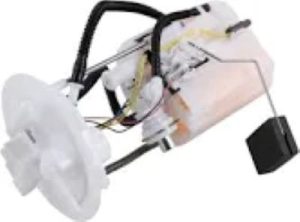This fuel pump filter is a very critical part in protecting the entire fuel system against the infiltration of impurities into the fuel injectors and the engine, trapping dirt, rust, or any other form of debris. The filter would be located between the fuel tank and the injectors; it prevents contaminants from reaching sensitive parts of an engine. Given that blockages can occur from particles as small as 10 microns in diameter, a good filter ensures the system will operate properly and prevent premature wear of the Fuel Pump, and other critical components. In fact, a clogged filter puts extra strain on the fuel pump, which can reduce its efficiency by 15 to 20 percent, and may even shorten the life span.
Clean fuel is required for proper combustion. Fuel injectors rely on just the right atomization, which can be virtually ruined by any minute particle. "A clean fuel filter keeps your engine running smoother and avoids costly repairs," says Scotty Kilmer, an expert in automotive science, thus signifying the replacement of such filters periodically.

The normal conventional fuel filter should be replaced every 30,000 to 50,000 miles depending on the vehicle's specification and driving conditions. However, it will need to be replaced more frequently in case the vehicle is always driven in a dusty environment or the grade of fuel is always poor. Poor fuel delivery is because of neglected filter maintenance in that the flow is restricted by a clogged filter, further giving low fuel pressure, hence erratic performance. Anything below 35-65 PSI in the fuel side of a gasoline engine will, among other things, result in symptoms such as rough idling, reduced power, and even engine stalling.
These filters are not very expensive, with costs ranging from $15 to $60, so this ranks among the cheaper preventative measures. If the vehicle has a high-performance or turbocharged engine-a real need for highly specific fuel flow-an efficient filter with finer filtration should be used for consistent fuel delivery. In this way, it protects the engine from early wear and improves fuel efficiency by providing clean fuel to fuel injectors.
Regular maintenance of fuel pump filters serves not just the fuel pump itself but adds to the performance and durability of the vehicle. This little yet important component is the first line of defense within the fuel system, assuring reliability while helping you avoid expensive repairs.